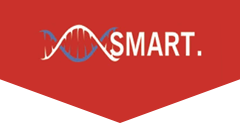Abstract
We present a decision path for creating flight software for linux-based university-class picosatellites. We favor languages and frameworks that support modularity and strong exception handling, and add that languages enabling fewer lines of code are easier to validate. Heritage and use of existing frameworks are useful but human factors-- that are often team dependent-- are more crucial for undergraduate teams. Additionally, picosatellites can benefit from “pico Agile” development methods so as to maximize time available for testing. We include case studies including core Flight Software (cFS), our C-based TrapSat sounding rocket payload, and our Python-based Cactus-1 CubeSat.
Recommended Citation
Antunes, Alex and Powell, Randy
(2024)
"Developing Picosatellite Flight Software,"
American Journal of Science & Engineering (AJSE): Vol. 1:
Iss.
1, Article 3.
Available at:
https://research.smartsociety.org/ajse/vol1/iss1/3

